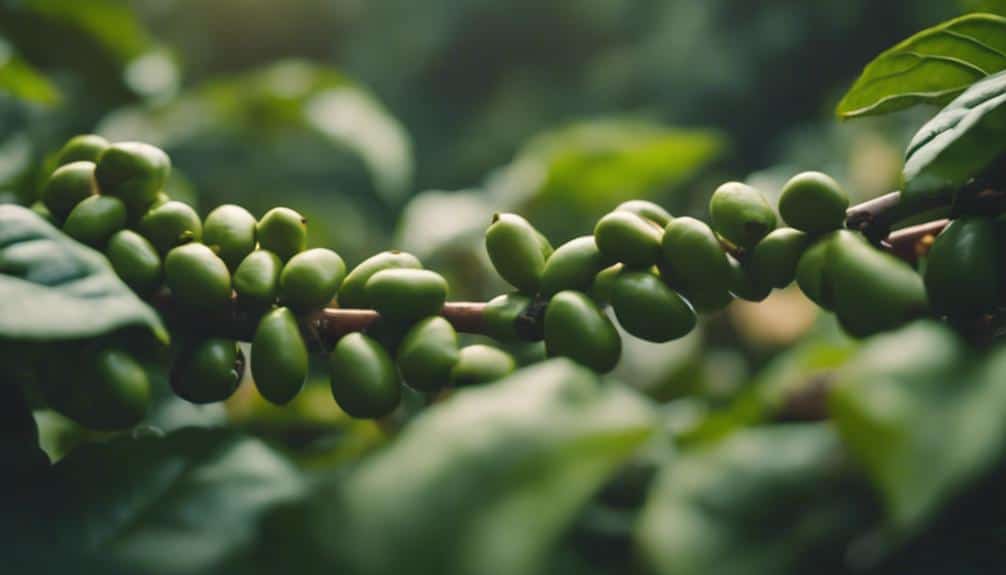Why Choose Organic Low Acid Coffee

As a coffee enthusiast, I've discovered the subtle yet significant reasons behind opting for organic low acid coffee. The journey to finding the perfect cup involves not just flavor but also a consideration for health and sustainability. Imagine starting your day with a brew that not only tantalizes your taste buds but also aligns with your values and well-being. The allure of organic low acid coffee extends beyond the surface; it explores a domain where each sip embodies a harmonious blend of purity and responsibility.
Health Benefits of Organic Low Acid Coffee
Organic low acid coffee offers numerous health benefits, particularly for individuals with sensitive stomachs or specific medical conditions. This type of coffee, being USDA certified organic, is a healthier option as it's produced without synthetic pesticides or harmful chemicals.
For those prone to acid reflux, ulcers, or individuals recovering from bariatric surgery, organic low acid coffees are gentle on the stomach due to their lower acidity levels compared to mainstream coffee brands like Starbucks or Dunkin Donuts. The safety and purity of organic low acid coffee are guaranteed through independent testing for acid levels and contaminants, making it a cleaner and safer choice.
Additionally, health-conscious individuals can benefit from this coffee as it's free from mold, mycotoxins, heavy metals, and other harmful compounds that may be present in non-organic varieties. Choosing organic low acid coffee can thereby contribute to a healthier lifestyle, especially for those with specific dietary needs or seeking a safer coffee option.
Sustainable Farming Practices for Coffee
Shifting from discussing the health benefits of organic low acid coffee, sustainable farming practices for coffee guarantee environmental protection through the avoidance of synthetic fertilizers and pesticides in cultivation. Organic coffee cultivation prioritizes eco-friendly and ethical approaches to farming, ensuring the long-term sustainability of coffee production.
Here are some key aspects of sustainable farming practices for coffee:
- Preservation of Biodiversity: Organic coffee farming supports diverse ecosystems by avoiding harmful pesticides that can disrupt the natural balance of flora and fauna.
- Enhanced Soil Health: By abstaining from synthetic chemicals, organic coffee farming nurtures soil health, promoting a fertile and sustainable environment for coffee plants to thrive.
- Environmental Conservation: Sustainable farming practices in coffee cultivation contribute significantly to the preservation of the environment, safeguarding natural resources for future generations.
- Support for Ethical Practices: Choosing organic low acid coffee means supporting ethical labor practices and environmentally conscious methods in the coffee industry.
Digestive-Friendly Properties of Low Acid Coffee

When considering low acid coffee, its digestive-friendly properties make it a suitable choice for individuals with various gastrointestinal conditions such as acid reflux, IBS, ulcers, and Crohn's disease.
Organic low acid coffee is known to be gentler on the stomach compared to regular coffee, reducing discomfort and potential digestive issues. It's a stomach-friendly alternative for those who may experience heartburn, bariatric surgery, colitis, or other gastrointestinal sensitivities.
The reduced acidity in organic low acid coffee makes it a healthier option for individuals looking to support their digestive health and overall well-being. Low acid coffee provides a smoother, richer taste experience while being more tolerable for those with sensitive stomachs or digestive conditions.
Choosing organic low acid coffee can be a wise decision for individuals seeking a flavorful coffee experience without compromising their digestive health.
The Importance of Choosing Organic Coffee
In contemporary coffee culture, the preference for organic varieties has seen a significant rise due to heightened awareness of health and environmental concerns. Opting for organic low acid coffee not only offers a flavorful and gentle option for those with sensitive stomachs but also contributes to a more sustainable and ethical coffee industry. Here are key reasons why choosing organic coffee is of paramount importance:
- Chemical-Free: Organic coffee is grown without synthetic fertilizers or pesticides, ensuring a purer and chemical-free product.
- Environmentally Friendly: Environmentally friendly cultivation methods used for organic coffee production help preserve ecosystems.
- USDA Certified: USDA certified organic coffee meets rigorous standards, guaranteeing a higher quality and safer product.
- Rich Flavor Profile: Organic low acid coffee boasts a richer and more natural flavor profile compared to conventionally grown varieties.
Environmental Impact of Low Acid Coffee

Organic low acid coffee, by its cultivation practices focused on natural growth processes and absence of synthetic chemicals, greatly reduces its environmental impact.
Opting for organic low acid coffee supports sustainable agriculture by eliminating the need for synthetic fertilizers that can harm ecosystems and soil health.
The environmentally friendly methods employed in organic coffee farming also promote biodiversity and wildlife conservation, creating a healthier habitat for various species.
Conclusion
To sum up, opting for organic low acid coffee not only offers health benefits such as reduced acidity and digestive-friendly properties, but also supports sustainable farming practices and environmental conservation.
By choosing organic coffee, consumers can enjoy a flavorful and healthier cup of coffee while promoting the well-being of both themselves and the planet.
Making the switch to organic low acid coffee is a smart and responsible choice for coffee lovers looking to prioritize both their health and the environment.





